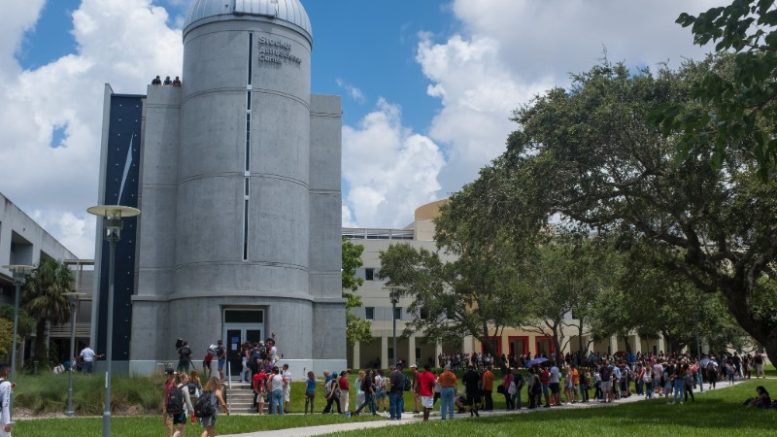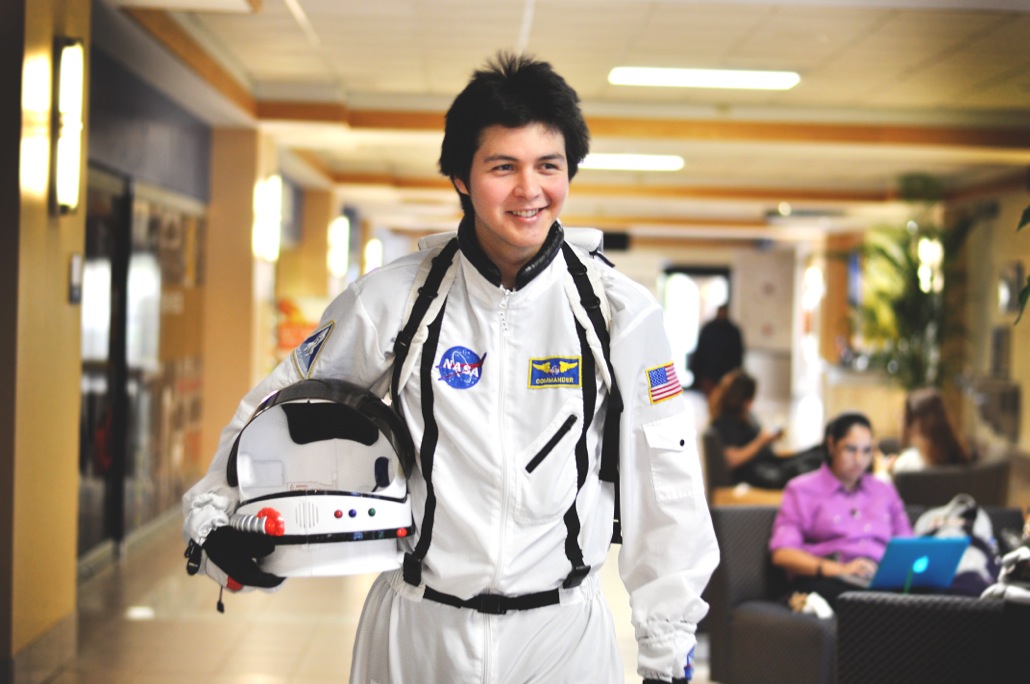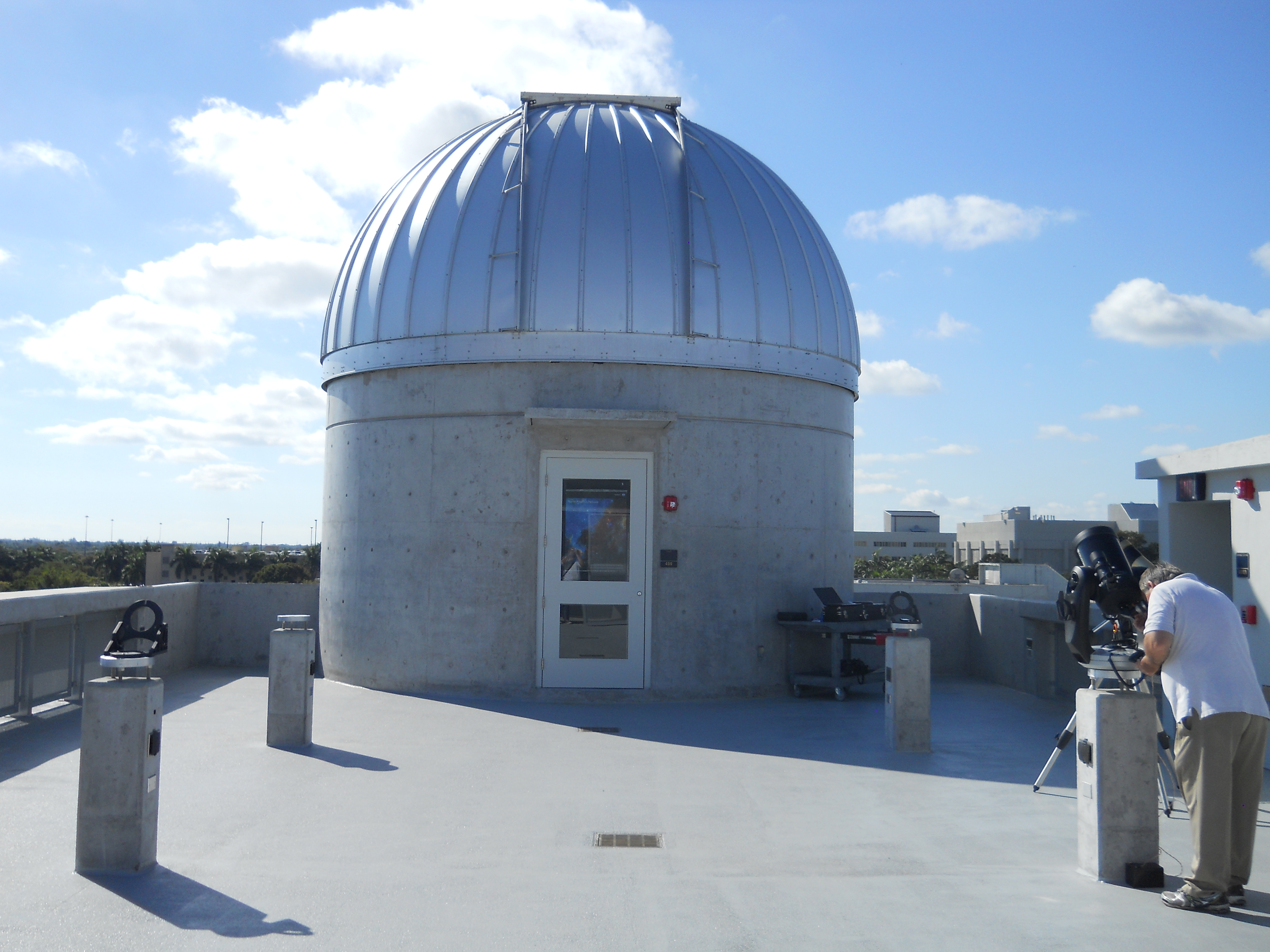Conor Moore | News Director
Dr. James Webb is a professor, astronomer, musician and director of the Stocker AstroScience Center. When not researching quasars and other interstellar bodies, Dr. Webb performs his original music across the country in various planetarium concerts.
From the AstroScience Center’s control room, he can control other telescopes around the world in Arizona and Chile, as well as observe Earth from a live video feed of the International Space Station.
But in an exclusive interview with PantherNOW, Dr. Webb spoke at length regarding what he considers one of the most important issues on campus affecting students and faculty alike – the lights.
Specifically, the bright, white lights around Graham Center and the Green Library that stay on well into the night, even as the facilities themselves are closed or empty.
To Dr. Webb, they obstruct 9/10ths of the AstroScience Center’s observatory’s visibility and are a source of wasted expenditure for FIU.
“So basically, [our] telescope is blinded by light pollution on campus. We want safe lights, we want lights that are pointed where they should be pointed and not pointed to the air, because that doesn’t do anything for anybody”, said Dr. Webb.
Part of Dr. Webb’s solution would involve repointing lights and turning off ones that are decorative or superfluous, like the colored lights pointed at the Graham Center’s outside concrete floors.
According to Dr. Webb, those lights are the prime culprits of the observatory’s lack of function. In his opinion, removing these lights are a prime example of what he calls a “win-win-win-win” solution.
“You can reduce the carbon footprint of campus, save money on electric bills, make campus safer, and you can bring the stars back.”
Dr. Webb also created a PowerPoint explaining the various problems with the lighting on campus and presented it to university officials in the AstroScience Center’s control room.
He said that despite them agreeing with his points regarding campus’ lighting flaws, there was simply “no money to fix [the problem]”.
Dr. Webb also brought up the harm the planned outdoor swimming pool proposed by the Board of Trustees would bring to the observatory if placed at the Graham Center Lawns.
“They want to build a swimming pool out there. I mean, when I saw that I called Ken Jessell, university president, and also John Cal, vice president for facilities management. That’s a terrible idea, you can’t have a pool out there. You might as well mothball the observatory”, said Dr. Webb.
He cited the glaring lights large pools often bring, as well as humidity from the water clouding the telescope lenses.
He later mentioned how SGA does a “lighting walk”, where they take campus police and other university management for a tour around campus looking for places to install more lighting.
“They never mentioned where light should be properly planned, or where light won’t be polluting. Just where they need more”, said Dr. Webb.
“How do they make that determination? What papers have they read about security and lighting? I’ve read thousands of papers about security and lighting. I believe in doing background research before I go to administration.”
What Dr. Webb really wants on campus though, is a planetarium. According to him, there were originally plans for a planetarium on campus, but the money fell short .
However, when a million dollar donation was provided, the university failed to match it.
“They just don’t understand the value of teaching science”, said Dr. Webb. “You can do an entire year of planetary motion in one half-hour session. So instead of talking about it on the blackboard, you can show it. It makes teaching so much easier.”
“With a planetarium, we can do so much more. It’s amazing, it’s a different world”.






Be the first to comment on "Bringing the stars back: an interview with Dr. James Webb"